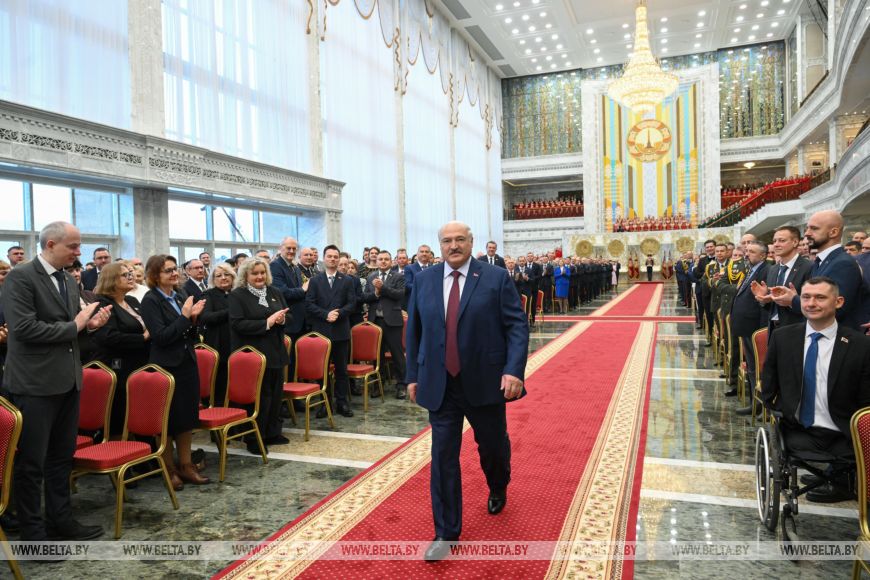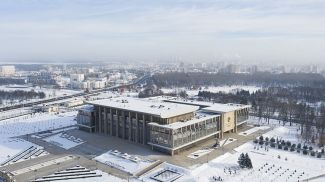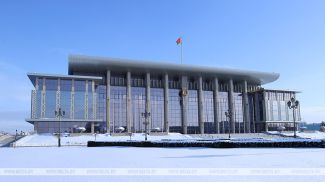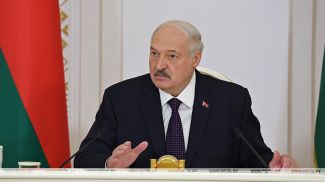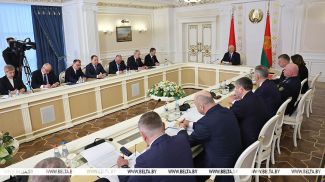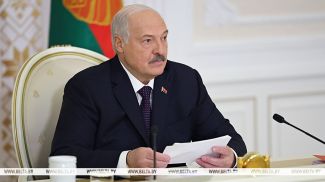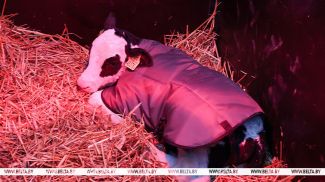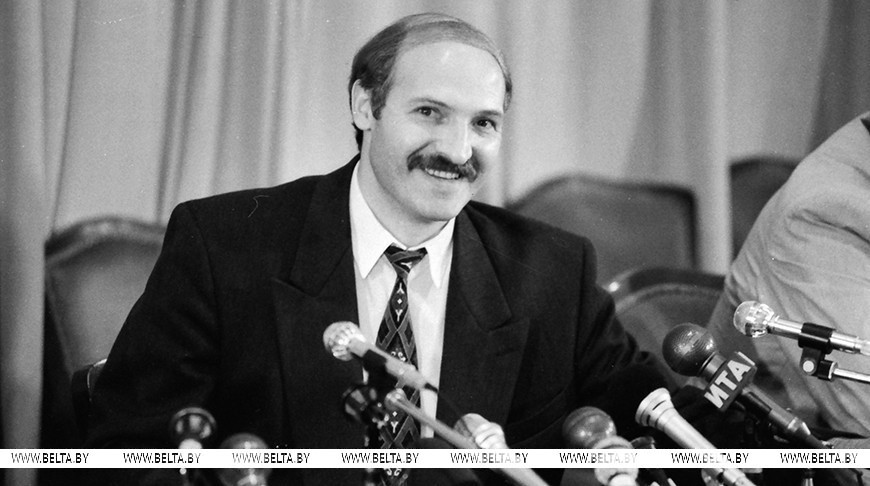
Aleksandr Lukashenko's first press conference after the presidential election, 13 July 1994
MINSK, 20 July (BelTA) – Today marks the anniversary of the first inauguration of the president of Belarus: on 20 July 1994 Aleksandr Lukashenko was sworn in as Belarus’ head of state in the Oval Hall of the Government House, BelTA has learned.
Six people ran for president in 1994. Aleksandr Lukashenko polled 44.82% of the votes in the first round and 80.3% in the run-off election.

“People have made their choice. The ball is in your court, head of state!” - read the subheading of the country’s main newspaper, Sovetskaya Belorussiya, after the election. And the president, as history shows, made this move, fulfilling his main promise to voters - to take the country away from the abyss.

Contemporaries said that people had high hopes for this election. Belarusians wanted stability and confidence in the future. But neither the old party elite who was in power at that time, nor the nationalist forces that rose to prominence after the collapse of the Soviet Union were able to address people’s needs and expectations concerning justice and quality of life. The previous government did not have an effective economic strategy, and several economic programs that they tried to implement failed. Poverty, hyperinflation and shortages of goods, rampant corruption, gang violance and racketeering - all this required immediate and decisive action.

Queue at a private store in Minsk, 1990

Queue at a store in Braslav at 6:30 AM, 1990

Queue for water in the Gomselmash neighborhood, 1993

Gasoline shortage in Belarus, 1993
In response to these challenges, Aleksandr Lukashenko came up with a simple but effective recipe called ‘Belarusian dictatorship’, for which he still gets a lot of flak from ill-wishers who would like to see the country divided, or even deprived of its sovereignty. “The only dictatorship that is possible in a country that seeks to join the international community on equal terms is the dictatorship of the law. Everyone must be equal before the law, before our Constitution - from a schoolchild to the president,” the head of state said in his inauguration speech.

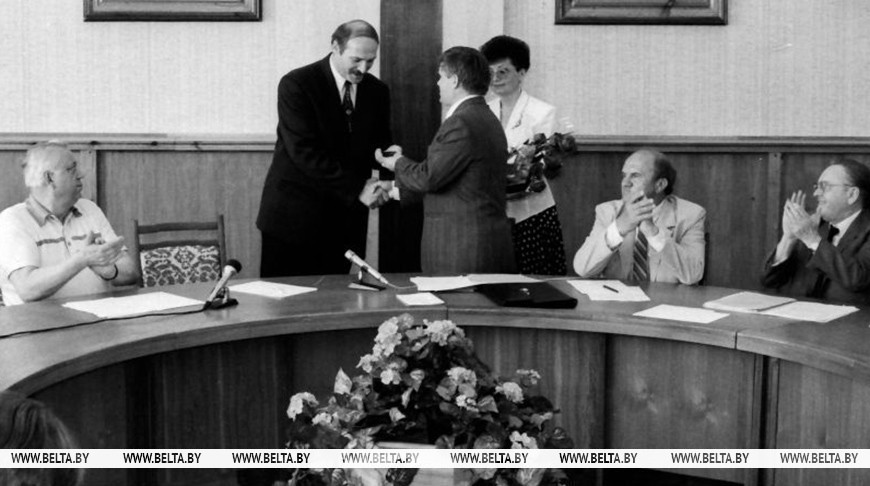
Aleksandr Lukashenko receives the Certificate of the President of the Republic of Belarus, July 1994
Despite the enormous popular support, Aleksandr Lukashenko’s first term as president was not easy. The opponents had significant organizational capacity and a strong will to resist. The fight was not just dirty, it involved illegal activities, like the assassination attempt on Aleksandr Lukashenko when he was on campaign trail. His car was shot at, but he survived the attack.
Nevertheless, having become president, Aleksandr Lukashenko left behind all grievances and extended an olive branch to yesterday’s opponents. He suggested that the inauguration day should mark the end of confrontation and become the first step towards civil accord: “It is impossible to overcome the economic crisis without the collective effort of the entire Belarusian people. That is why the first president must and will rise above personal political interests, and will be open to closest cooperation with all political forces who are ready for constructive work for the benefit of Belarus.”

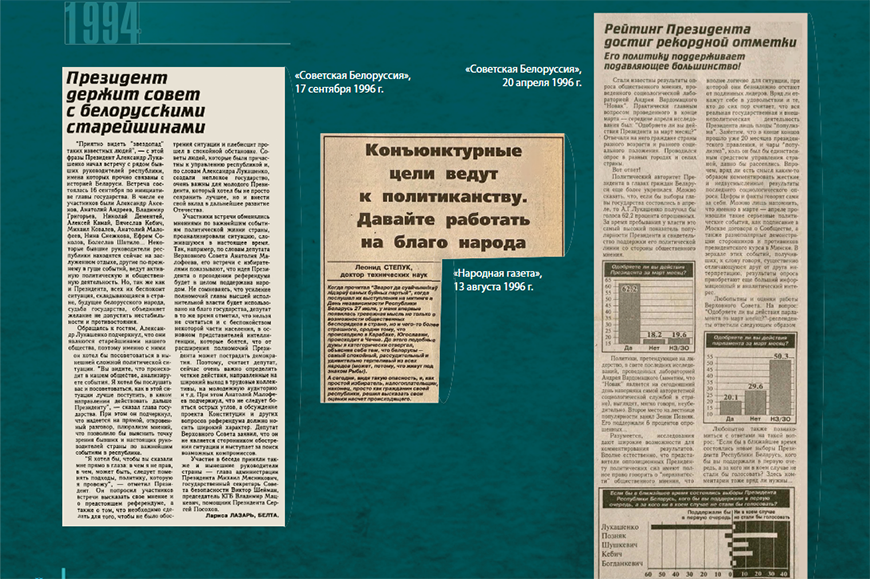
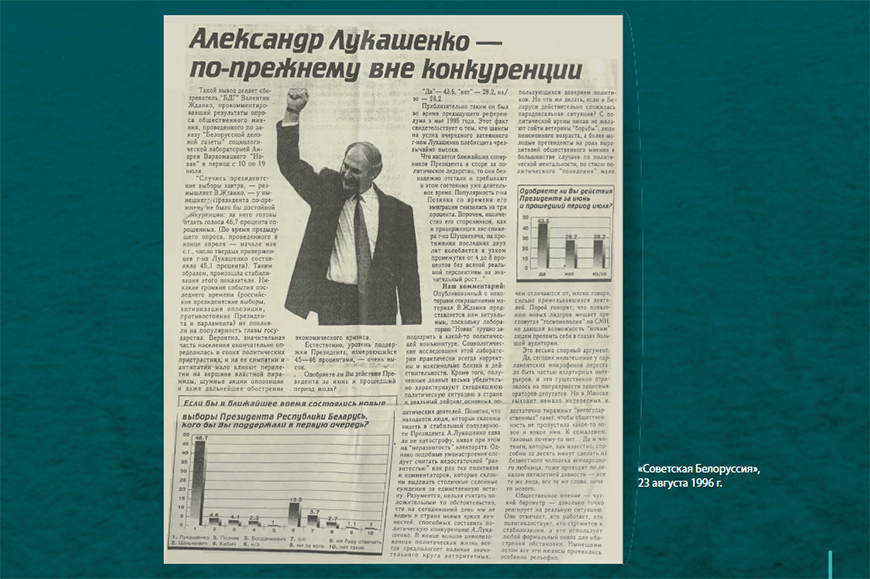 Screenshots of the BelTA book “Superposition. Parallel Worlds”
Screenshots of the BelTA book “Superposition. Parallel Worlds”
“Belarus’ main asset is people. The most important task of all top decision-makers, including the president, is to ensure decent living standards. Let’s leave behind political ambitions and fights. After all, all of us, despite our differences, have one land, one Motherland, we have something and someone to live and work for,” the Belarusian leader emphasized after taking the first presidential oath.
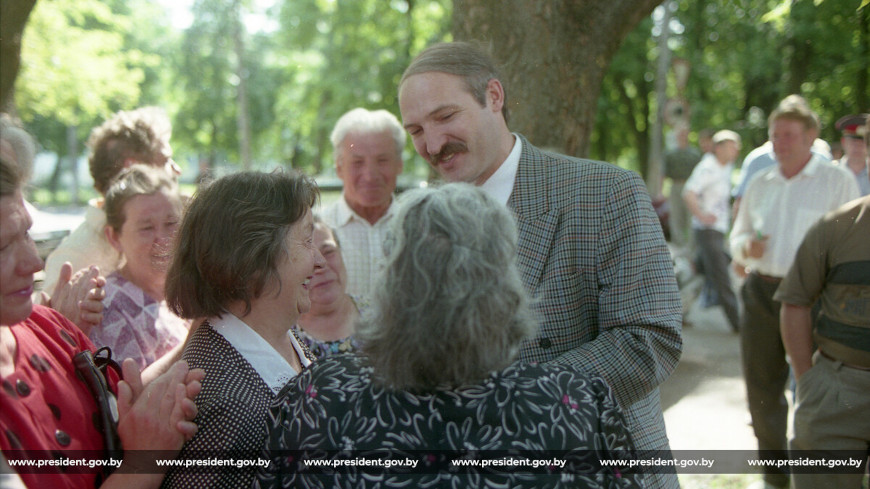
On 10 July 1994, Aleksandr Lukashenko took part in the run-off election at the polling station in Shklov Secondary School No. 1, and won the election in a landslide.
The inauguration ceremony was quite humble. A rostrum for the president in the Oval Hall and an extended list of guests were the only notable differences from regular sittings in the Oval Hall. They say that the ceremony was copied from the former Soviet republics, which had held their presidential elections several years ago. Associates recall: the head of state was suggested wearing a white suit. But he refused, because he thought it was not appropriate. The presidential post, especially in those days, was not a blessing or a reward, but rather a heavy burden.
“Belarus’ first elected head of state must constantly feel his connection with ordinary people, whose hard work keeps our land together. I promise you that this connection will never be broken,” the president said in July 1994.
